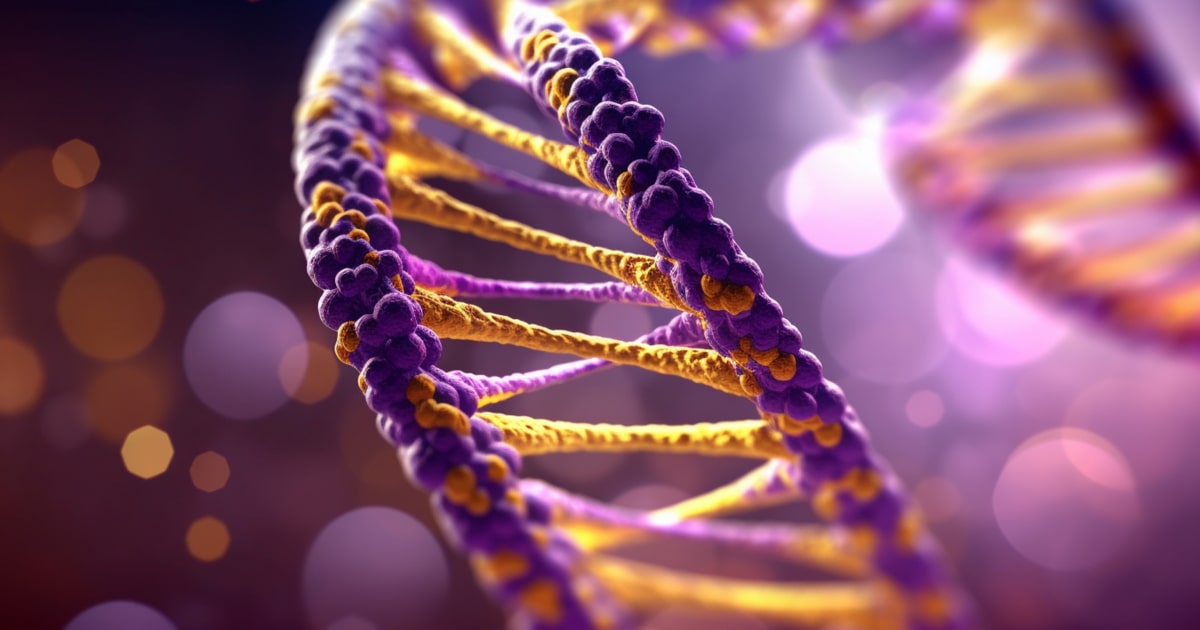
Expert Reviewed By: Dr. Brandon Colby MD
Porencephalic cysts are rare neurological disorders characterized by the presence of fluid-filled cavities within the brain. These cysts may be congenital or acquired, and their clinical manifestations can vary significantly depending on the size and location of the cysts. This article aims to provide an understanding of porencephalic cysts, their diagnosis, and the role of genetic testing in managing this rare condition.
Understanding Porencephalic Cysts
Porencephalic cysts can develop during the prenatal period or after birth, resulting from various causes such as brain infections, hemorrhages, or head trauma [1]. These cysts are often associated with neurological deficits, including seizures, developmental delays, and motor impairments. However, some individuals with porencephalic cysts may remain asymptomatic throughout their lives [2].
Diagnosing Porencephalic Cysts
Diagnosis of porencephalic cysts typically involves a thorough clinical evaluation, including a detailed patient history and neurological examination. Imaging studies, such as computed tomography (CT) scans or magnetic resonance imaging (MRI), are crucial for visualizing the cysts and assessing their size, location, and potential impact on surrounding brain structures [1].
In some cases, the diagnosis of porencephalic cysts may be incidental, as demonstrated by a case report of a 45-year-old female who experienced her first seizure due to a porencephalic cyst [3]. This highlights the importance of considering this rare condition in adults, even in the absence of typical clinical manifestations.
Genetic Testing and Porencephalic Cysts
While the exact cause of porencephalic cysts remains unknown, genetic factors may play a role in their development. Genetic testing can help identify potential genetic abnormalities associated with porencephalic cysts and provide valuable information for personalized treatment and management strategies.
Understanding the Genetic Basis of Porencephalic Cysts
Although the genetic basis of porencephalic cysts is not yet fully understood, studies on related disorders, such as autosomal dominant polycystic kidney disease, may provide insights into the genetic mechanisms underlying these conditions [4]. Further research is needed to identify specific genes and mutations associated with porencephalic cysts and to determine their potential role in the development of these rare neurological disorders.
Benefits of Genetic Testing for Porencephalic Cysts
Genetic testing can provide several benefits for individuals with porencephalic cysts and their families. These benefits include:
- Improved diagnosis: Identifying genetic mutations associated with porencephalic cysts can help confirm the diagnosis and provide a better understanding of the underlying cause of the condition.
- Personalized treatment: Genetic information may help guide treatment decisions, such as the choice of medications or the need for surgical intervention, based on the individual's specific genetic profile.
- Family planning: Genetic testing can help families understand the risk of porencephalic cysts in future pregnancies, allowing them to make informed decisions about family planning and prenatal care.
Limitations of Genetic Testing for Porencephalic Cysts
Despite its potential benefits, genetic testing for porencephalic cysts also has limitations. These include:
- Uncertain clinical significance: The clinical significance of identified genetic mutations may be unclear, making it difficult to predict the individual's prognosis or response to treatment.
- Cost and accessibility: Genetic testing can be expensive and may not be widely available, limiting its use in the diagnosis and management of porencephalic cysts.
In conclusion, porencephalic cysts are rare neurological disorders that can present with a wide range of clinical manifestations. Early diagnosis and appropriate management are crucial for improving the quality of life for individuals with porencephalic cysts. Genetic testing may provide valuable insights into the underlying causes of these conditions and help guide personalized treatment strategies. However, further research is needed to fully understand the genetic basis of porencephalic cysts and to optimize the use of genetic testing in their diagnosis and management.
About The Expert Reviewer
Dr. Brandon Colby MD is a US physician specializing in the personalized prevention of disease through the use of genomic technologies. He’s an expert in genetic testing, genetic analysis, and precision medicine. Dr. Colby is also the Founder of and the author of Outsmart Your Genes.
Dr. Colby holds an MD from the Mount Sinai School of Medicine, an MBA from Stanford University’s Graduate School of Business, and a degree in Genetics with Honors from the University of Michigan. He is an Affiliate Specialist of the American College of Medical Genetics and Genomics (ACMG), an Associate of the American College of Preventive Medicine (ACPM), and a member of the National Society of Genetic Counselors (NSGC)